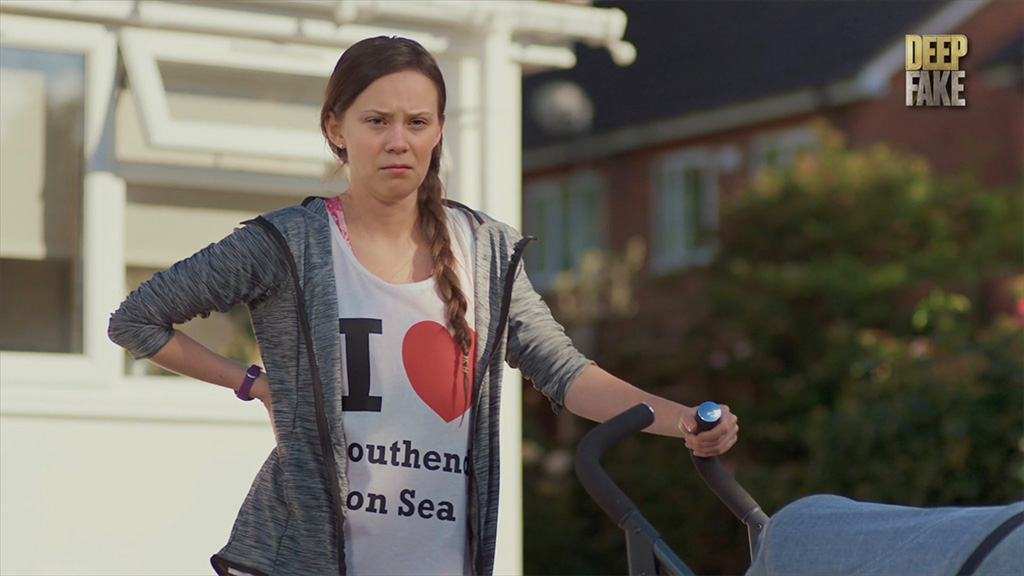A show that is exclusively available on the ITVX online video service raises interesting legal and ethical questions about representation and reality. It has certainly attracted attention, if not critical acclaim. If this is the future of television, it is unfortunately not so funny.
The programme begins with a disclaimer: “This is all fake. The stories are all made up. The real celebs have had nothing to do with this. Our celebs are all played by actors. Their faces are all DEEP FAKED.”
Deep Fake Neighbour Wars is a parodic pastiche of the nasty neighbour dispute format with the twist that the participants are all celebrities.
Idris Elba falls out with Kim Kardashian. Environmental campaigner Greta Thunberg is a teenage mother pushing a pram around suburban streets. Or so it seems.

These inhabitants of the uncanny valley are played by lookalike actors and their faces have been replaced by deep fake representations that are remarkably plausible.
The application of deep fakes to a long-form programme has been pioneered by StudioNeural, which produced 35 lookalikes across six episodes of 120 minutes of ultra-high-definition synthetic media.
So-called deepfakes are based on deep learning techniques from machine learning and artificial intelligence.
Although used here for supposedly comic effect, the implications are profound. The show clearly demonstrates how it is now possible to create a convincing moving image of someone saying or doing something without their knowledge or consent and pass it off on television or online as reality.
A continuous Deep Fake caption on screen signals that all is not as it seems and is intended to prevent the scenes being presented out of context online.
The creative opportunities are incredible and there are many practical applications. While moving picture media have always constructed a representation of reality, synthetic media raise profound questions about the authenticity and trust.
